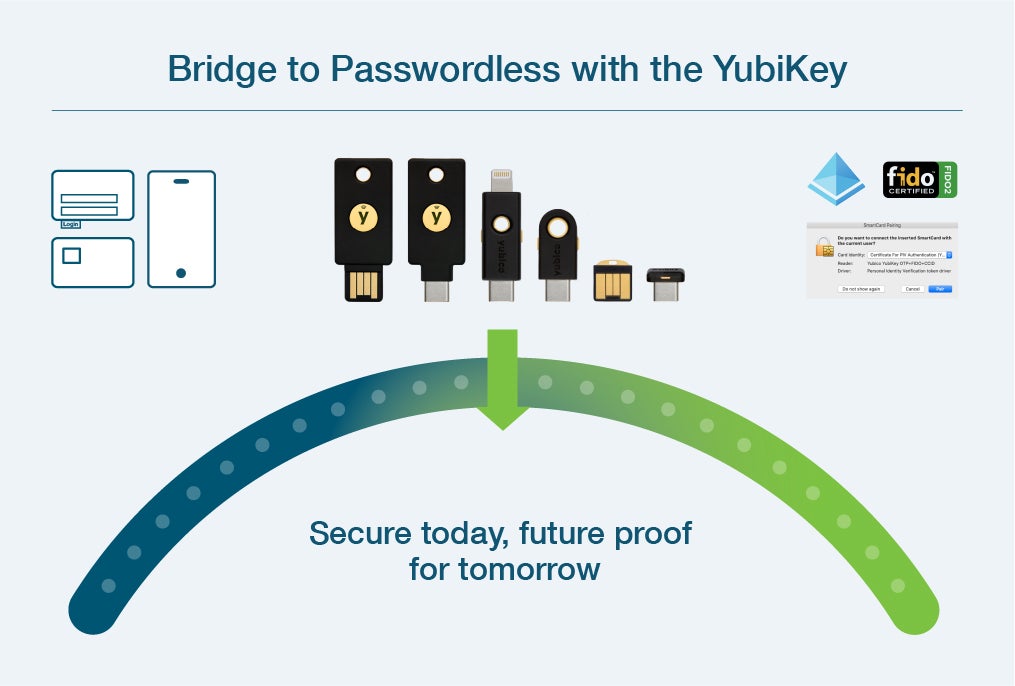Mastering The Deployment Of YubiKeys: A Comprehensive Guide
In an age where cybersecurity is paramount, the deployment of YubiKeys stands out as a crucial step in enhancing digital security. These small hardware devices serve as a formidable line of defense against unauthorized access to sensitive information. As organizations and individuals seek to bolster their security posture, understanding how to deploy YubiKeys effectively becomes essential. This guide will walk you through the process of deploying YubiKeys, ensuring that both organizations and individuals can harness their full potential.
The benefits of utilizing YubiKeys extend beyond mere convenience; they provide a multifactor authentication solution that significantly reduces the risk of phishing attacks and data breaches. By integrating YubiKeys into your security framework, you create a robust barrier that protects your digital assets. In this article, we will cover the various aspects of YubiKey deployment, from initial setup to best practices, helping you to understand how to deploy YubiKeys seamlessly.
Whether you are a small business owner looking to secure your company's data or an individual seeking to protect your personal accounts, this guide will equip you with the knowledge needed to implement YubiKeys effectively. Join us as we explore the ins and outs of YubiKey deployment, ensuring that your journey towards enhanced security is both informative and successful.
What is a YubiKey?
A YubiKey is a small USB device that provides secure, two-factor authentication (2FA) for online accounts and services. With its unique authentication methods, including one-time passwords (OTP) and public key infrastructure (PKI), YubiKeys are designed to enhance the security of user accounts. By requiring physical access to the YubiKey, users can significantly reduce the chances of unauthorized access to their sensitive information.
Why Should You Deploy YubiKeys?
Deploying YubiKeys can greatly enhance your cybersecurity strategy. Here are a few reasons why it’s beneficial:
- Improved Security: YubiKeys provide an added layer of protection through two-factor authentication.
- Ease of Use: They are simple to use, requiring just a tap or insertion to authenticate.
- Phishing Resistance: YubiKeys help protect against phishing attacks by requiring physical possession of the device.
- Cross-Platform Compatibility: They work with various platforms and services, making them versatile tools for security.
How to Deploy YubiKeys in Your Organization?
Deploying YubiKeys within an organization involves several steps. Here is a structured approach:
- Assessment: Identify the systems and applications that require enhanced security.
- Procurement: Purchase the appropriate number of YubiKeys based on the assessment.
- Configuration: Set up the YubiKeys for each user, linking them to their accounts.
- Training: Educate employees on how to use YubiKeys effectively.
- Implementation: Roll out the YubiKeys across the organization.
- Support: Provide ongoing support for users experiencing issues.
What Are the Best Practices for YubiKey Deployment?
To ensure a successful deployment of YubiKeys, consider the following best practices:
- Backup Keys: Provide users with backup YubiKeys in case of loss or damage.
- User Education: Regularly train users on security practices and YubiKey usage.
- Regular Updates: Keep YubiKey firmware and associated software updated.
- Monitor Usage: Track the usage of YubiKeys to identify potential security issues.
How to Deploy YubiKeys for Personal Use?
Individuals can also benefit from deploying YubiKeys for personal accounts. Here’s how to get started:
- Choose the Right YubiKey: Select a YubiKey model that suits your needs.
- Set Up Accounts: Go to the security settings of your online accounts and enable two-factor authentication.
- Register Your YubiKey: Follow the instructions to register your YubiKey with your accounts.
- Test the Setup: Ensure that the YubiKey works correctly by logging out and logging back in.
What Challenges Might You Encounter When Deploying YubiKeys?
While deploying YubiKeys can significantly enhance security, there are potential challenges to consider:
- Loss of YubiKeys: Users may misplace their YubiKeys, leading to access issues.
- Compatibility Issues: Not all platforms support YubiKey integration.
- User Resistance: Some users may be hesitant to adopt new security measures.
- Initial Setup Complexity: The setup process can be complex for some users.
Can You Use YubiKeys with Non-Online Services?
Yes, YubiKeys can be used with non-online services as well. Many organizations utilize YubiKeys for:
- Virtual Private Networks (VPNs): Secure remote access to organizational resources.
- Device Encryption: Protecting sensitive data on devices through enhanced authentication.
- Secure Shell (SSH): Enabling secure remote system access with added authentication.
What Should You Consider Before Deploying YubiKeys?
Before deploying YubiKeys, consider the following factors:
- Cost: Evaluate the budget for purchasing YubiKeys for all users.
- Training: Ensure you have a plan for educating users on how to use YubiKeys.
- Support: Assess the level of technical support available for troubleshooting.
- Policies: Develop policies regarding YubiKey usage and security protocols.
In conclusion, understanding how to deploy YubiKeys is essential for enhancing cybersecurity in both organizational and personal contexts. By following the steps outlined in this guide, you can effectively implement YubiKeys to safeguard your digital assets, mitigate risks, and create a more secure environment. Whether you are a business leader or an individual, the deployment of YubiKeys can revolutionize the way you protect your information.
Captivating Moments: The Gabbie Marshall Wedding
Tony Cox And His Kids: A Closer Look At The Family Life Of A Hollywood Star
Unraveling The Intriguing Robin Tunney Relationship Journey


